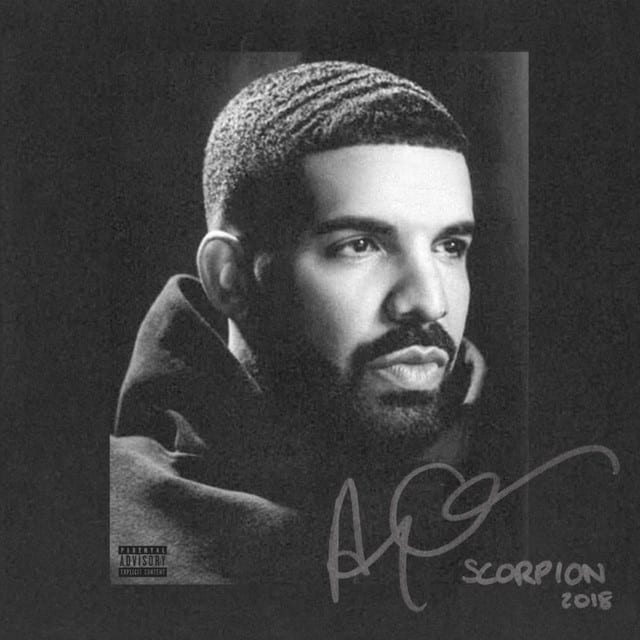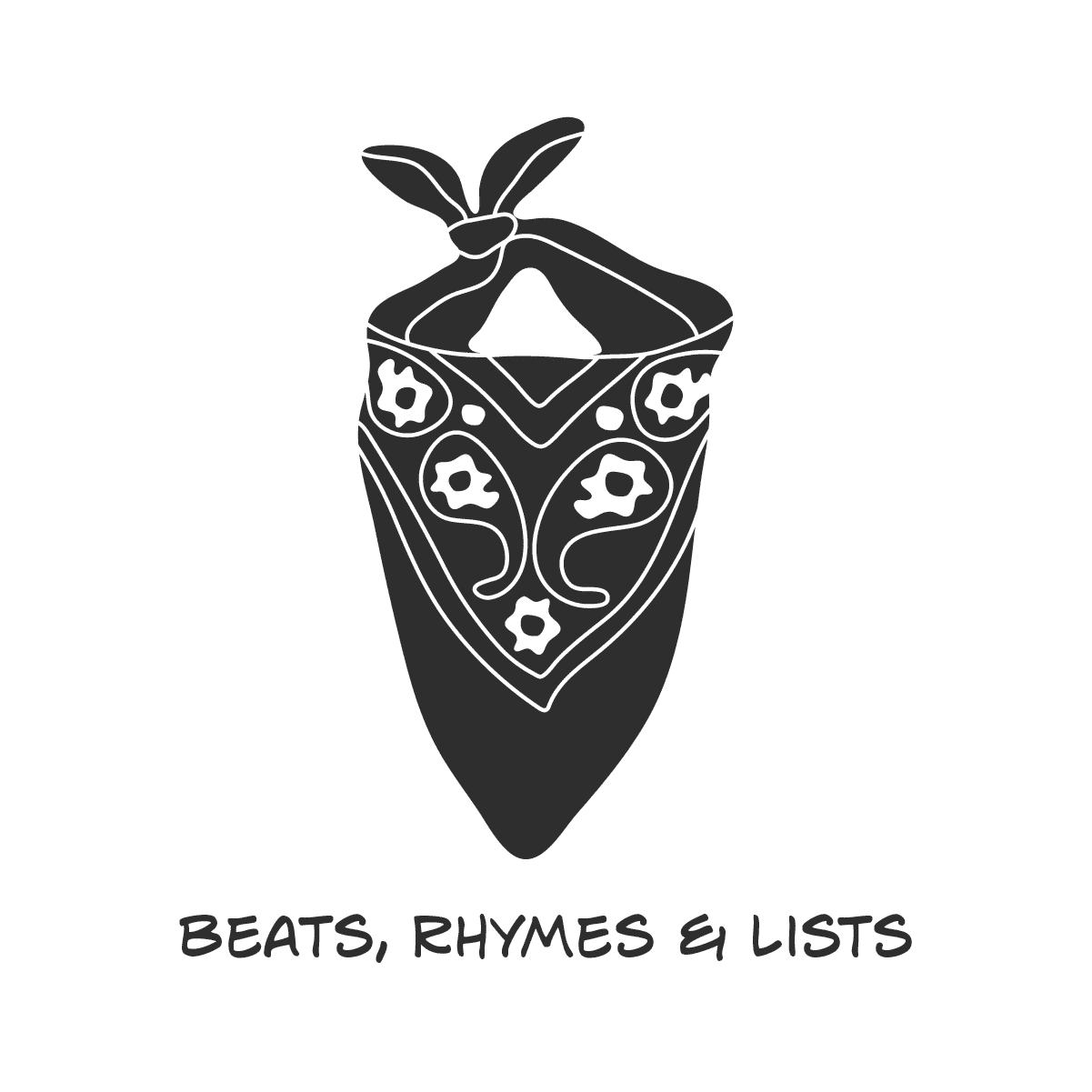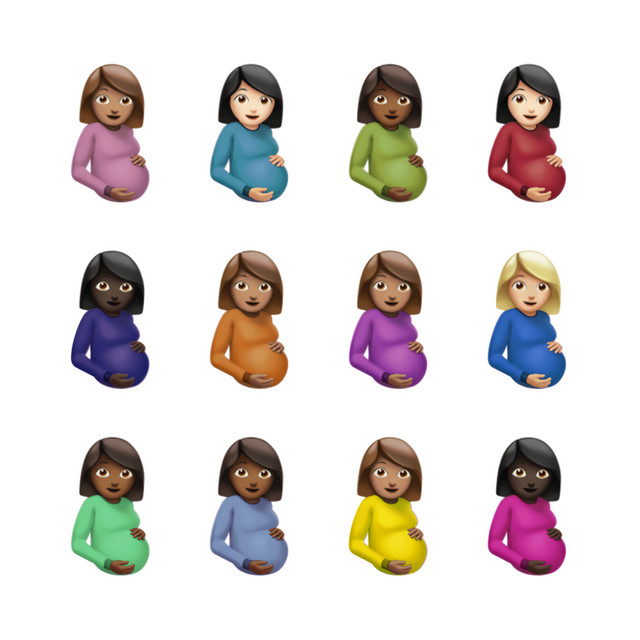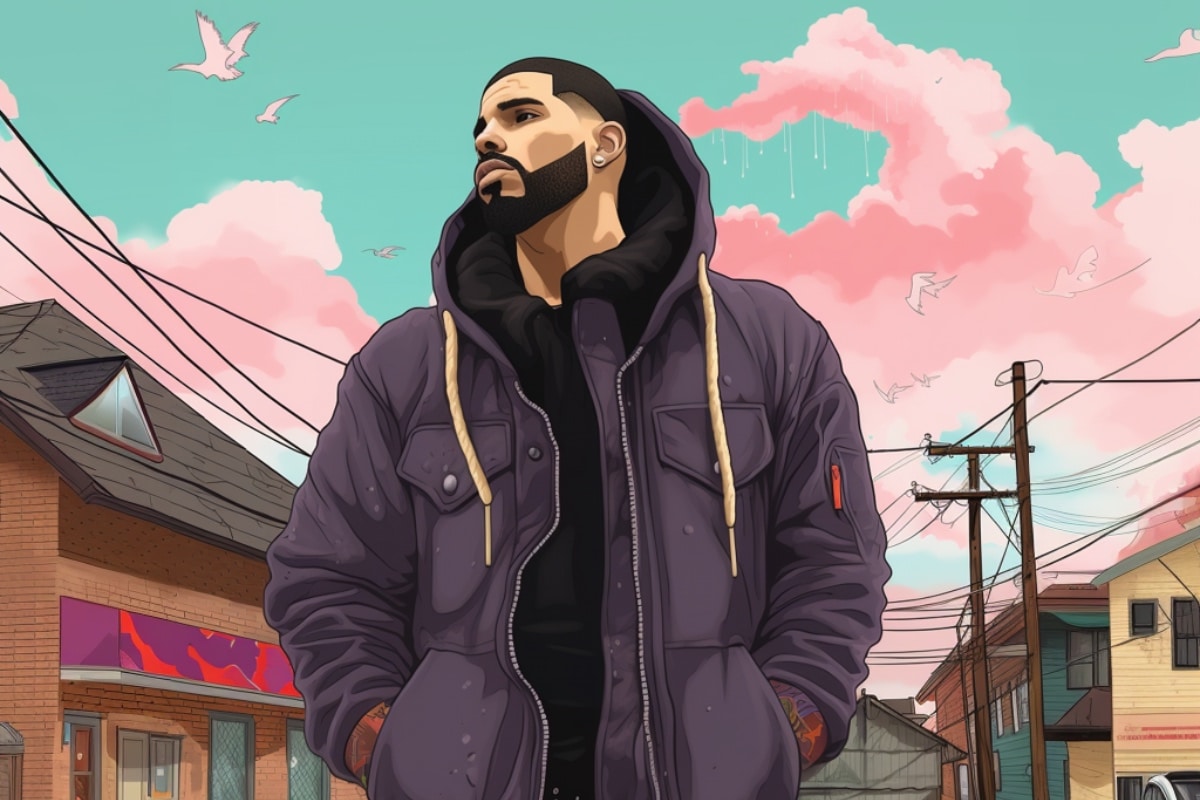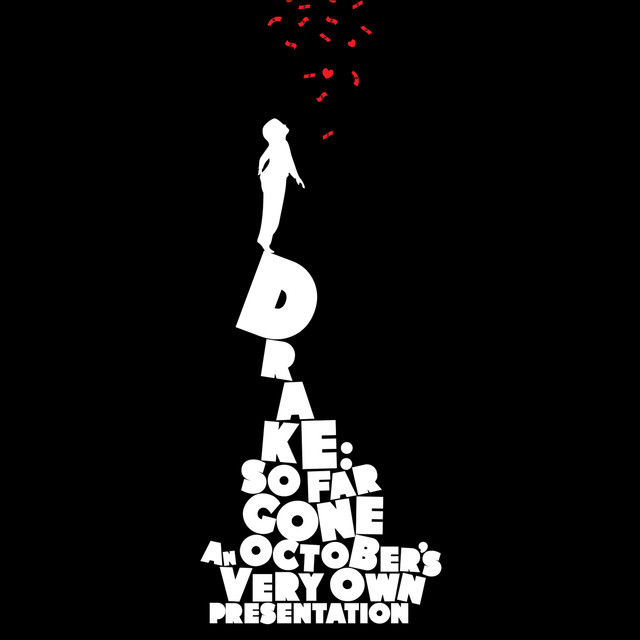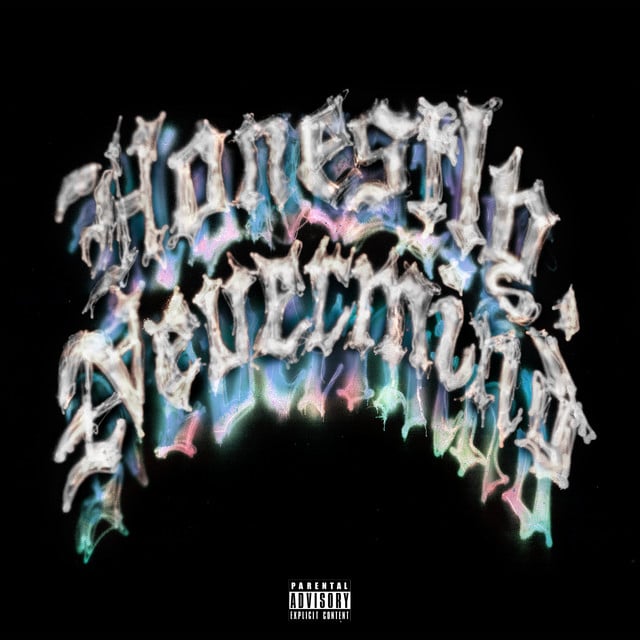Released: 2018
Label: Cash Money/Drake LP6
Featuring: JAY-Z, Michael Jackson, Static Major, Ty Dolla $ign
The hip-hop landscape shifted seismic when Aubrey ‘Drake’ Graham dropped his double album “Scorpion” back in 2018. The charts weren’t safe from the 6 God as he unleashed a sonic onslaught, eloquently displaying his lyrical finesse and mastery of the game. That’s not hyperbole, Drizzy notched up record-breaking streaming numbers and bagged a Grammy nod while he was at it. Can’t even front on that.
But beneath the platinum plaques and Billboard hotspots, what “Scorpion” truly presented was a Drake raw and unfiltered. Through tracks like “Emotionless,” and “I’m Upset,” he spit venom and vulnerability in equal measure, painting a complex portrait of fame, fatherhood, and feuds. It was peak Drizzy, drippin’ emotions and bars, all while keeping us questioning – what’s poppin’ in the psyche of the Champagne Papi?
From the undeniable radio anthems like “God’s Plan” and “In My Feelings”, to deeper cuts such as “Sandra’s Rose” and “March 14,” Drake’s “Scorpion” is a hip-hop cornucopia that’s ripe for some deeper dissection. So let’s not play ourselves any longer. So let’s get into it. From “Survival” to “March 14,” here’s a breakdown of the lyrics on “Scorpion” by Drake.
1. Survival
Wisely chosen as the album’s opening salvo, Drake uses this track to reclaim his narrative. King Drizzy serves up unapologetic swagger, asserting himself as hip-hop royalty while also touching on struggles for credibility and respect. He references his independent status in the industry, lingering beefs, personal hardships, and the heavy toll of fame. A clear testament to his resilience, “Survival” sets the tone for the entire album – that of a man who’s been through the ringer but remains defiantly standing, ready to spit fire and call it as he sees it.
2. Nonstop
Drake swags about flipping the game, making reference to his power moves like the LeBron-inspired “go from six to twenty-three.” He boldly demands respect, while flexing his successes that include a sneaker endorsement deal he secured without breaking a sweat. The lyrics affirm the Canadian rapper remains unapologetic about his identity, embracing his uniqueness in lines like, “Yeah, I’m light-skinned, but I’m still a dark nigga.” In his typical Drake fashion, he underscores the constant hustle emblematic of his journey and the never-ending nature of his ambition, all the while showcasing his resilience in the face of adversity.
3. Elevate
He speaks on his rise from a humble upbringing to rap superstardom, showcasing the shift from ‘pumping gas on road trips’ to basking in ‘big whale treatment’. Acknowledging the constant blessing to reap huge earnings (‘Georgie got me up a hundred thousand for the weekend’), he reveals a mindset where fiscal accomplishments mirror self-improvement. The lyric “Only obligation is to tell it straight” embodies Drake’s ethos of authenticity in his music — a ruthless self-examination paired with a heart-on-his-sleeve vulnerability, a trait he’s been both lauded and criticized for. This cut from ‘Scorpion’ is a testament to why Aubrey’s become the poignant voice of a generation, constantly striving to elevate, indeed.
4. Emotionless
The 6 God peels back layers on fame’s often deceptive allure and the cost of living in the public eye. He references his own disillusionment, pointing to the heroes he once admired that have ‘gone from bad to worse.’ It’s easy to dismiss Drizzy’s introspective bars as melancholic but listen close, homie – there’s wisdom buried inside. He dissects the modern plague of social media and the fake lifestyles it perpetuates, echoing sentiments shared by many in the culture. The climax hits with an earth-shaking confession about his son, a secret kept under wraps. “Emotionless” isn’t just an ember in the Scorpion fire; it’s a testament to the Toronto titan’s introspective evolution.
5. God’s Plan
He paints a picture of a public figure who moves with calculated coolness, often misunderstood and discussed, while carving out his own narrative in hip-hop. He takes a trip down memory lane, reminiscing Weston and Southside, spotlighting his loyalty to his crew and his roots. Drake also opens up about his vulnerabilities, wrestling with love and its consequential dilemmas. The beauty of this track lies in its authenticity and the dichotomy of the Drake persona – the superstar rapper and the introspective human being. It’s a quintessential Drake track, subtly complex and relentlessly catchy.
6. I’m Upset
Delving into the 6 God’s frustrations with the expectations of society, women, and the music industry at large, the track connects with anyone feeling weighed down by the pressures of success. The repeated line, “Can’t go fifty-fifty with no hoe,” speaks volumes about Drake’s stance on relationships and wealth. The mention of his dad’s unresolved child support issues from 1991 further amplifies this. Yet, beneath the defensive swagger is an artist grappling with betrayal and the constant demand for his ‘soul.’ It’s a raw, introspective cut, encapsulating Drake’s mastery of turning personal pain into universal anthems.
7. 8 Out Of 10
This audacious track, embodying a brazen bravado, serves as a testament to his undisputed reign in the hip-hop game. Drake, in his iconic fashion, places himself as the ‘good guy’, handling envy and his omnipresence in the game with flair. The song elevates his status, shedding light on his prosperous career, his powerful position in the industry, and even tackling family ties. Through his words, he throws a jibe at his detractors, asserting his control over the mic, the stage, and the city, while relishing his surmountable wealth and legacy in the rap universe.
8. Mob Ties
The lyrics indicate this isn’t the Toronto wordsmith we’ve seen mooning over a lost love, but rather the “6 God” settling scores in the dystopian corners of the hip-hop landscape. Drake cuts deep into his affinity with the mob mentality, emphasizing loyalty and dismissing disloyalty with chilling nonchalance. This Drake doesn’t mess with the “ra-ra,” is tired of the drama, and just wants to secure his position at the top. In essence, this track is testament to Drake’s evolution from the kid who started from the bottom to a force to be reckoned with, draped in designer threads, drenched in notoriety, and indifferent to the naysayers.
9. Can’t Take A Joke
The Hidden Hills reference is a nod to his Calabasian neighborhood, while the line about kicking it with the “Reps Up boys” pays homage to his Toronto roots. Drizzy’s shifts from veiled sarcasm to raw vulnerability, showing haters won’t dissuade him from his grind. The titular punchline “they can’t take a joke” reveals a Drake comfortable in his skin, able to laugh at himself and the absurdity of his fame while schooling those who misconstrue his humor. It’s a complex power move from the 6 God, making his critics dance to his laugh track.
10. Sandra’s Rose
Known for blending his personal and professional life, Drake pulls no punches, outlining the challenges he faced growing up and how Sandra provided solace. This joint sees him acknowledging his roots, demonstrating gratitude for his mother’s sacrifices while paralleling her influence to his career trajectory. From life in the 6, navigating fame, handling conflicts, and on to achieving chart dominance, it’s all a testament to the resilience instilled in him by Sandra. This record is a brilliant showcase of vulnerability and confidence, fortitude and tribulation, layered over a soulful sample. A perfect rose, amidst the thorns of Drake’s life and career.
11. Talk Up (feat. Jay-Z)
Drake’s biting lines hint at the critics who doubt his credibility while asserting his unmatched ability to churn out hits. He presents himself as the map-maker, the one who put the ‘6’—Toronto, his home city—on the global hip-hop radar. Hov, on the other hand, brings a grittier perspective, opening up about his drug-dealing past and expressing distaste for the state of society, particularly in the shocking line about Trayvon Martin’s killer, George Zimmerman. The song becomes a confluence of two generations of hip-hop, each with its authentic experiences and unique challenges.
12. Is There More
He weighs the excesses of his fame against the quest for a more meaningful existence, his introspective lines illuminating the struggle between the glitzy trappings of hip-hop stardom and the pursuit of personal growth. Drake’s contemplative mood rides the moody undercurrent of the track, as he grapples with the concept of success, wealth, and respect. By juxtaposing lyrical snapshots of his lifestyle with profound self-questioning, Drake presents an intricate perspective of his reality. Far from a simplistic braggadocio, “Is There More” exemplifies Drake’s ability to blend raw introspection with the thematic archetypes of hip-hop.
13. Peak
Viscerally tied to the cold dampness of England, he circles topics of fleeting love, digital bravado and expectations. The late Princess Diana, an apt symbol of love and tragedy, becomes a metaphor for idealism. The song mirrors thorny realities where ‘talk is cheap’ and people are only as ‘tough as their phones allow them to be.’ The 6 God lays his peace, even if it ruffles feathers. He flips the script on infatuation culture, challenging the idea of moving too fast. The interlude-like dialogue towards the end underscores this point, echoing the struggles of modern romance in Drake’s trademark contemplative style.
14. Summer Games
Seasoned with the flavor of summer romance, Drake flips the script from smooth operator to the jilted lover, taken aback by the swift change of heart of his love interest. The track weaves a narrative of confusion and heartbreak, capturing the ephemerality of a love that resembled the fleeting nature of summer itself. The song is a stark reminder of the game of love, punctuated by digital age nuances where following and unfollowing on social media becomes a metaphor for love and rejection. It’s a testament to Drake’s storytelling prowess, as he paints a vivid picture of love’s confusing paradoxes, where declarations of love and sudden goodbyes coexist.
15. Jaded
The track serves as a raw unveiling of Drake’s fragilities; a capsule that unfolds the skeletons tucked in the 6 God’s closet. Filled with candid admissions, it depicts his struggles with loving and leaving, a tug-of-war game entangled with fame’s high stakes. This tug-of-war caused Drake’s dreams of love to leave a bitter taste behind: a jaded perspective. But the Torontonian isn’t just telling us his sob story – through those bars, he subtly critiques the music industry’s impact on relationships while reaffirming his place as the master of introspective anthems.
16. Nice For What
It’s a love letter to independent women navigating life’s ups and downs, all while juggling modern-day pressures. The lyrics emphasize being there for each other (“Care for me, care for me”) while Drizzy simultaneously calls out the game for its tendency to undervalue women. It’s a strategic move, challenging the status quo while raising women up. He earns brownie points for flipping the script, not just celebrating these women but also recognizing their struggles and telling ’em they don’t have to be “nice” for anyone. It’s a significant shift from typical hip-hop narratives, and it’s pure champagne papi: smooth, sophisticated, and socially aware.
17. Finesse
Caught in a whirlwind of stardom and personal relationships cultivated under the spotlight, Drake brings the realities of his high-profile lifestyle to the fore. His lyrics dive into a conflicted space where love meets fame, navigating the choppy waters of having a public versus private persona. The mention of Fashion Week highlights the trade-offs of fame, while the repetitive “finesse” emphasizes the delicate maneuvering required within his complex dynamics. This introspective piece explores Drake’s struggle with his own advice and the challenges of maintaining connections amidst fame, making it a stand-out track in the ‘Scorpion’ saga.
18. Ratchet Happy Birthday
Drizzy goes ham on this track, crafting an anthem tailored for celebratory moments, a stark contrast to his usual introspective bars. The lyrics reflect the highs and lows of relationships, with the birthday serving as a metaphor for both celebration and introspection. Here, Drake showcases his adeptness at incorporating emotional undertones within an ostensibly upbeat narrative, exploring the dichotomy between external celebrations and inner turmoil. His wordplay with buttercups, Reese’s, and Ibiza subtly hints at a sense of longing and unmet expectations in relationships — a classic Drizzy move. The ‘6 God’ once again proves that he’s hip-hop’s Shakespeare, making us feel while we vibe.
19. That’s How You Feel
The 6 God goes from being “in the cut, sittin’ sideways” to facing a broken heart, painting a vivid picture of the emotional rollercoaster of modern romance. His lyrics are tinted with a touch of regret, confronting the past head-on, but never losing his cool, his flow persistent like tick-tocks on a clock. The trip down memory lane ain’t all melancholy though, he’s still about grinding ’til you come up. By blending raw vulnerability with a hustler’s spirit, Drake crafts a narrative that’s as relatable as it is rhythmically tight.
20. Blue Tint
The lyrics hint at the transient, icy nature of his relationships, yet he manages to encase them in golden moments. His raw honesty hits hard as he discusses the struggles of a woman fighting for her child while balancing work, a real-world scenario many can relate to. The blue-tinted refrain mirrors Drake’s “blue-tinted” life, shimmering with success yet cast with shadows of conflicts and struggles. Amongst all, Drake’s unshakeable determination to rise despite adversity rings the loudest.
21. In My Feelings
This cut takes listeners on a ride through Drake’s emotional landscape as he questions the loyalty and love of multiple women—with emphasis on Kiki and Resha—even as he acknowledges his own neediness. The song also showcases Drake’s dexterous storytelling, juxtaposing opulent lifestyle references with raw emotional inquiries. His repeated queries about whether these women are ‘riding’ for him echo an ongoing battle between fame-induced paranoia and genuine longing for authentic companionship. This hip-hop heartthrob symphony serves as an intriguing exploration of Drake’s struggle with vulnerability and intimacy in the limelight.
22. Don’t Matter To Me (with Michael Jackson)
This song is a layered tapestry of vibes, one that sees the 6 God grappling with the fallout of a toxic relationship. With a vintage MJ crooning on the hook, Drake uses his verses to explore the chaotic cocktail of love, stress, self-destruction, and the wilting petals of romance. The track showcases Drizzy at his most vulnerable, dissecting his emotions and exposing raw truths. This emotional honesty is steeped in the seductive allure of the night, where wrongs feel right and vices pare down inhibitions. An introspective Drake dovetails with the ethereal voice of MJ, culminating in a hauntingly beautiful track about navigating the troubled waters of a fizzling relationship.
23. After Dark (feat. Static Major & Ty Dolla $ign)
Our boy Drake invites us into a clandestine love story, depicting late-night rendezvous framed by secrecy and desire. The lyrics reflect a struggle to balance professional dedication and personal intimacy, with a nod to weekend disappearing acts that add tension to the narrative. Repeatedly, Drake underscores the pull of the after-hours, the temptation of the forbidden. At the same time, there’s a palpable tug-o-war of trust and commitment, with a lady who’s been wronged before and a man pledging honesty. “After Dark” is the track for those low-light, quiet storm moments, making the night pulse with possibilities.
24. Final Fantasy
He laces the track with references to luxury and stardom while intertwining it with intimate images and experiences, laying bare his desires. Drake’s lyricism here is a testament to his evolution as an artist, successfully merging the sultry and the relatable in a unique blend. This audacious expression of intimacy is a prime example of Drake’s talent for narrative storytelling, grounding explicit themes in human connection and emotion. In essence, “Final Fantasy” is a vivid snapshot of Drake’s prowess in conveying visceral experiences through the medium of rap.
25. March 14
The 6 God breaks down the harsh truths about adulthood and responsibility in the wake of a surprise paternity. He uses the hook to paint his loneliness and longing for guidance as he navigates this new stage of life. In a poignant twist, he references his iconic “11” tattoo, originally an homage to Aaliyah, now a symbol for his newborn. But despite the struggles, there’s a palpable sense of determination: If Drizzy ain’t dead, he’s dedicated. Ultimately, “March 14” is a soul-baring testament to parenting, offering a unique perspective from one of hip-hop’s biggest icons.
